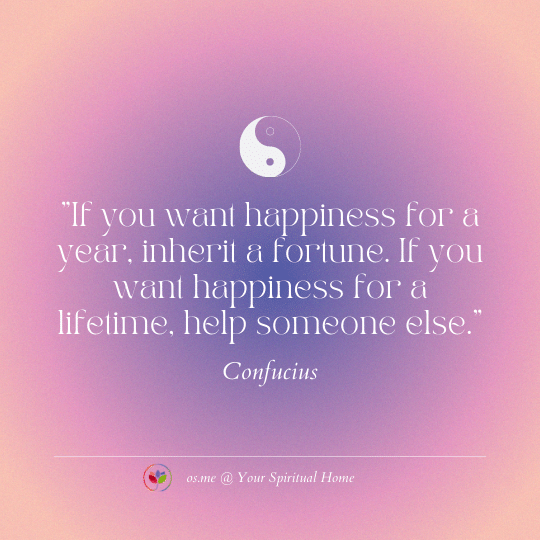In a small village once, everyone was indebted, materially. Its people earned their livelihoods based on local trade. The farmer would buy on credit and pay the supplier upon the harvest, the supplier would source on credit and clear his dues when he got his payment, and so on. Everyone owed someone, basically.
There was a hotel in that village, more like a motel. One day, a rich merchant from a nearby town visited them. He thought of staying the night there. He went to the hotel and insisted on seeing the room before checking in. The manager agreed and informed him that he would require a security deposit of one hundred dollars. And that, if he chose not to take the room, his deposit would be returned. The merchant saw no harm in this and put a hundred-dollar bill on the counter. The manager called a bell boy to show a room on the top floor to the gentleman.
Barely had they started moving towards the room when the manager took the bill and ran out of the hotel. He went to the nearby convenience store and paid his outstanding dues of one hundred dollars and returned to the hotel.
Further, the store owner rushed to the farmer and cleared his debt of the same amount. The farmer owed money to a private banker, so without ado, he ran to the lender and paid back his long-overdue loan. The lender owed a prostitute and he quickly got rid of his debt by forwarding the payment. The prostitute, in turn, owed the hotel for she had once used a room for her trade. To protect her reputation, she ran to the hotel, paid the manager, thanked him, and went on her way.
By that time, the merchant came down and told him the room was not up to standard. The manager handed back the hundred-dollar bill and the merchant left.
No one pocketed anything but the whole village became debt-free. Everyone was relieved of their stress, loans, and debts.
Similarly, in the whole scheme of things, in the play of nature, the bottom line does not change, the grand total remains the same regardless of the volume and nature of individual transactions.
If you have accumulated a certain debt, it is you alone who has to pay it back. That’s your karmic account. Let us say, a certain bank manager is your best friend and you need chips. You cannot approach him with the argument that he has millions in his bank and therefore he should lend you some money, from someone’s account, from anyone’s account. Even if he wants to, he cannot do it.
Nature cannot give you what you have not earned just like it cannot take away from you what is rightfully parked in your karmic account. It is impartial. You need to deposit before you can withdraw. Your actions and what you do with your life are entirely your own responsibility. Each individual has a separate karmic account, it is immaculately maintained, and there are no mistakes there. If you give someone grief because that is what they give you, it does not cancel out your transaction. You both remain accountable for your actions on an individual basis.
The Law of Attraction and the Law of Karma may well operate in tandem, but it is possible for one to do bad karma yet still excel at attracting good things. The reverse is also true — one may be a wonderful person and may still attract terrible things in life. Good or bad, that does not absolve him of his karmic debt, it does not get written off. It is dealt with separately by Nature. It is for this reason that sometimes someone whom you may call bad continues to flourish till their last breath. They can attract their desired things in life.
Good karma may or may not give you success as you define it, it may not give you a life of material richness and glamour, but, without fail, it will certainly reward you with peace and contentment. In fact, you can only do good karma when you are at peace within.
If you are happy inside, you will not hurt anyone with your words or gestures, you will only see the beauty in everything and you will only melt their hearts doing even more good karma. If you are bitter inside, if you are angry, you will find it increasingly hard to heal yourself.
Like the wounded lion or frightened snake, you may only end up causing more grief to the other person, resulting in even greater anguish for yourself. Happiness and good karma complement and fuel each other.
So, if peace is important to you, just know that it is funded by your karmic account.
The greater the karmic balance, the more the peace. It is in a state of peace alone that one experiences any type of joy. Ultimately, why do most people work, go on vacations, dine outside, live a lavish life, and wish for comforts? To enjoy themselves, right? To be happy, to be at ease with themselves, with those around them, with the world.
If you are happy to shed some of your expectations, and desires, if you are willing to be a little more forgiving, a bit more honest with yourself and others, you will find yourself at peace. If you can maintain that state under all circumstances, that will be self-realization. In that exalted state, you transcend all theoretical and intellectual propositions, your mind goes quiet and you experience an inexplicable flow of bliss. I say this from first-hand experience.
With peace and contentment as your armor, mindfulness and nobility being your mount, you win naturally, good karma happens effortlessly. You are a product of your thoughts, emotions, and karma. You can work on any one of these, the other two align automatically.
How do you work on these? Well, I have already covered that over the past few months. For better aid, I am segregating my posts and putting them in short e-books. They will be available for free download shortly. In the next post, I will expound on the four types of karma. Meanwhile, if you’d like to you can read The Karmic Trail and Psychic Imprints.
What they do with their body, mind, and life is their business. Your karmic transactions are your responsibility. It helps to mind your own business, especially if it is a sole proprietorship — the only permissible ownership structure in the Law of Karma.
Peace.
Swami
Editorial Note
Are you interested to learn more about how you can take responsibility for your karmic transactions? Here are some insights that will help you build good karma and a karmic account and create a positive karmic balance with others.
The karmic meaning of life is the set of actions that you perform in your life. Your karmic meaning of life determines what kind of experiences you will have in this world and how long you will stay on Earth.
The Karmic meaning of life is important to know because it helps you to understand your life better and also the reason behind your success and failure, happiness and sorrow.
Karma is an integral part of every living being’s life. Karma represents a universal law that governs everything in the universe, including human beings. It is believed that everything we do leaves impressions on our mind which keeps influencing our thoughts, actions and reactions throughout our lives until they are resolved through forgiveness or repentance.
How do things get added to my karmic account?

The choices you made yesterday, voluntary or otherwise, have landed you where you are today, and the choices you are making today will dictate your tomorrow. Karmic balance is the toll you pay for the choices you made in the past. Hence, it is paramount that you pay attention to your present actions, your present thoughts, and the range of choices available in the future is a direct function. It is a derivative of your present actions, your future, well, your life, in fact, depends on it. To further learn about the different types of karma which contribute to your karmic account, read more here.
I have done some bad things in life. How can I clean up my karmic deeds to balance and bring karmic meaning to my life?
Out of ignorance or arrogance, we all seem to have said or done things we wish we hadn’t. Doing bad karma does not necessarily make one bad though. Often, good people end up doing bad things and the so-called bad people do plenty of good too. A mere bad thought or action does not make you inferior. Instead, what shows the inferiority of consciousness is when we don’t have the courage to admit that yes I messed up and I am sorry about it. Read more here.
How to clear past life karma, and will prayer help balance my karmic account?
Praying is your method of connecting with him, and Grace is his method of connecting with you. Grace does not mean he can directly absolve you of your karmic duties and karmic debt. When you call and say ‘hello’, that is praying, when he answers back, that is grace, sometimes, he calls back later. If you insist on stopping the rain, it is merely evidence of obstinacy, a sign that you are being selfish, not thinking about others who may need rain, it is not going to work, instead, pray for protection. If your faith is unshakeable, He will source an umbrella for you. Read more here.
Do my thoughts, speech, actions, or words leave a Karmic trail and affect my karmic account? If yes, is there a way one can understand how all karma leaves behind a residual trial?
Karma is of three types, namely, physical, verbal, and mental. Every action leaves behind an imprint. Physical actions may produce tangible residue whereas verbal and mental karma creates psychic imprints. If you analyze the trail of any karma, you may be surprised how it may wane but is never destroyed completely. It is the residue of each karma that conditions you. Read more here.
Karmic Account and Karmic Debt: What is it, and how can one rise above it?
Let us look at the three types of Karma according to Bhagavad Gita. Krishna instructs Arjuna on the Karma of three types:
First, that is sātvika, the one done in the mode of goodness,
Second, rājasī, performed in the mode of passion and
Third, tāmasī, the one done in the mode of ignorance
A video discourse in Hindi explains this in detail. Read more here.
Why do bad things happen to good people, and is God punishing them for their past karmic deeds?
So, the question is not why do bad things happen to good people or the other way, the question is why must there be a universal theory to provide an answer that will fit your frame of understanding, of comprehension, of conditioning?
I do not believe that God is up there carving some cunning designs or executing some sinister plans to harm or benefit a certain set of people, that, there is a God who gets upset if you do not follow a certain religion, or that He will grace you with the riches of the world if He is pleased with you. He would no longer be God if He was partial and biased. I believe in Grace but I do not believe that it is based on the mere performance of rituals or adherence to a certain religion. It may not be without cause and effect, it mostly remains a work of art though. Read more here.
Am I adding bad karma to my karmic account by thinking inappropriate thoughts, and how can I rise above this?
Thoughts are not good or bad, right or wrong, moral or immoral, they are just thoughts. They take one or the other form based on how we pursue and deploy them. When we cling to a thought or follow its track, we are performing mental karma, and, that, in turn, is the seed of all physical actions.
Whenever you are bothered by any lingering thought, simply ask yourself three questions and watch it become feeble in no time.
From where has this thought originated? Where is it traveling? Where has it disappeared? Read more here.
How to discharge some of the Karmic debt and Creating A Positive Karmic Balance With Others?
When you have to discharge a karmic debt, the quicker and more you pay, the faster you get over and done with it. The more blockages there are, the longer it will take you. The next time you give and the other person doesn’t reciprocate, don’t take it too seriously. Tire them out with your goodness and charity and not with your expectations and demands in return. In the long run, it’s going to be absolutely worth it. Particularly, if you care about elevating yourself spiritually and setting yourself free, which, I may add, is the whole point of our existence and my writings. Read more here.
How can one give a good personal karmic meaning to life?

In this transient life, in our temporary world, the only true deal is the deal of charity. It’s the most profitable transaction. Be kind, be selfless. Whatever you embark on will lead to success then. Dust will turn into diamonds in your hands. Your mere touch will turn iron into gold — you’ll become a touchstone. Your plans won’t fail, your words will come to pass. How come, you may wonder? Because Nature can’t afford, much less dare, to mess with a selfless person. Read more here.
A GOOD STORY
There were four members in a household. Everybody, Somebody, Anybody and Nobody. A bill was overdue. Everybody thought Somebody would do it. Anybody could have done it but Nobody did it.
Don't leave empty-handed, consider contributing.It's a good thing to do today.









Comments & Discussion
19 COMMENTS
Please login to read members' comments and participate in the discussion.